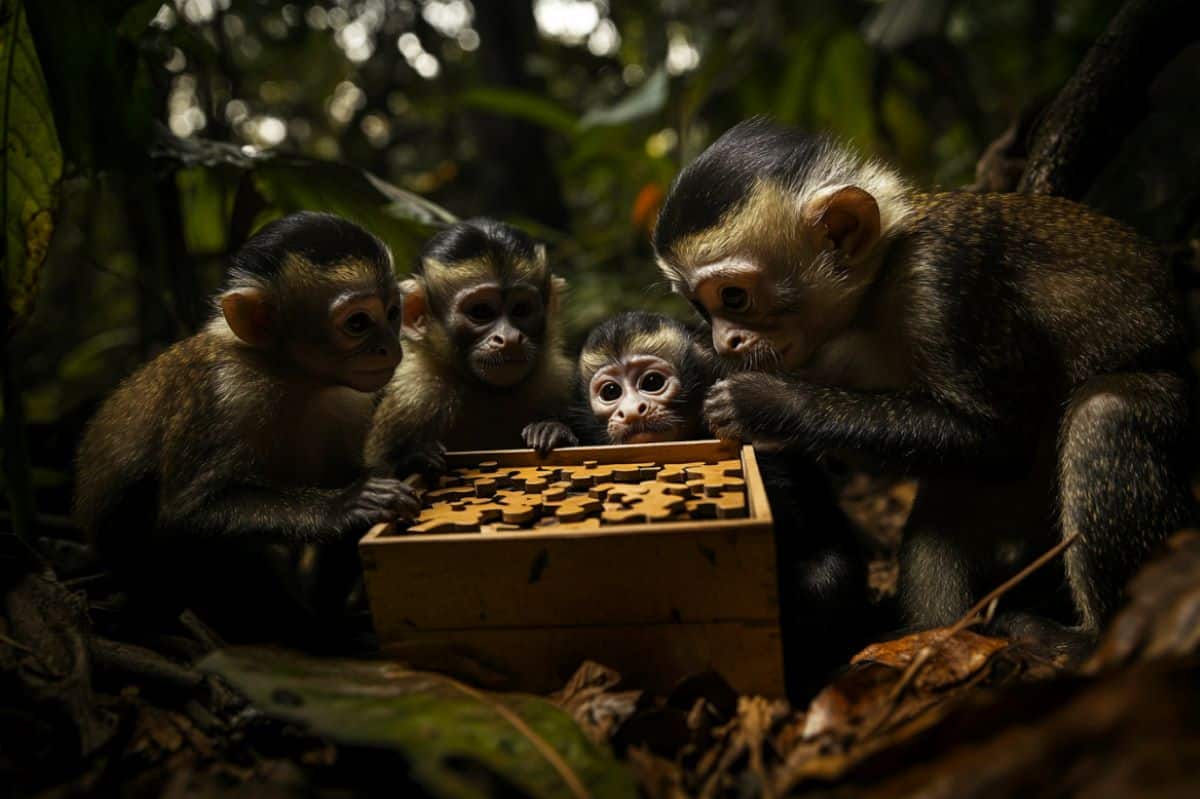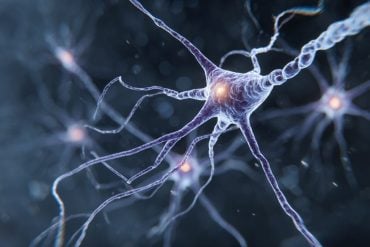Summary: Wild bearded capuchins use social learning to solve problems, influenced by social tolerance and group dynamics. Researchers observed the monkeys interacting with a puzzle-box and found that grooming partners and tolerant individuals were more likely to learn from each other.
Naïve monkeys often observed successful males, showing how social hierarchy shapes learning. These findings shed light on the evolution of cultural abilities in primates, including humans.
Key Facts:
- Social tolerance predicts learning patterns among wild capuchins.
- Monkeys learn by observing tolerant group members and high-status individuals.
- Social learning is key to passing skills down generations in primates.
Source: Durham University
The research team, led by Durham University’s Department of Anthropology, studied two groups of wild bearded capuchin monkeys in Brazil’s Serra da Capivara National Park.
The researchers installed a large box in the park which contained food that the monkeys could access by either lifting a door or pulling a knob.
The team observed which monkeys learned how to access the food, and how that information then spread to the rest of their group.
The researchers specifically focused on the role played by social tolerance in the learning of the problem-solving behaviour.

Social tolerance determines who is allowed in proximity to whom and granted access to resources such as food or social information.
The study indicates that the monkeys mainly learned from others via direct observation and strong social tolerance (e.g. amongst grooming partners) was found to be a good predictor of which monkeys would learn from each other.
Beyond the influence of social tolerance, naïve monkeys were more likely to observe, and potentially learn from, successful males in the group.
The findings have been published in the journal Proceedings of the National Academy of Sciences (PNAS).
Professor Rachel Kendal of Durham University’s Department of Anthropology co-supervised the study.
She said: “Bearded capuchins possess the largest ‘toolkit’ among monkeys, and this is likely due to social learning, enabling skills to be passed down the generations.
“Once we’d established that social learning was happening, we wanted to study what influenced the pattern of who was learning from whom.
“We looked at social tolerance and found that the individuals who displayed strong indicators of social tolerance in their everyday lives, such as grooming or eating close together, were more likely to observe each other when interacting with the puzzle-box.
“We also found that social tolerance influenced how information about solving the puzzle-box spread among the groups.
“For example, a skill may not be learnt by others if the individual possessing the skill is not of a sufficient status to be observed or, conversely, is intolerant to the proximity of others and so doesn’t allow themselves to be observed.
“So, our findings indicate that social tolerance enables social learning, which may be biased towards successful individuals, and this may shed light on the evolutionary forces involved in primate, including human, cultural abilities.”
The study was co-supervised by Eduardo B. Ottoni of the Institute of Psychology, University of São Paulo, Brazil.
The lead authors are Camila Galheigo Coelho and Ivan Garcia-Nisa, both former PhD researchers in the Anthropology Department at Durham University.
About this social neuroscience and learning research news
Author: Alexa Fox
Source: Durham University
Contact: Alexa Fox – Durham University
Image: The image is credited to Neuroscience News
Original Research: Open access.
“Social tolerance and success-biased social learning underlies the cultural transmission of an induced extractive foraging tradition in a wild tool-using primate” by Rachel Kendal et al. PNAS
Abstract
Social tolerance and success-biased social learning underlies the cultural transmission of an induced extractive foraging tradition in a wild tool-using primate
Cultural evolutionary processes can often lead to a statistical association between neutral and adaptive traits during episodes of population dispersal and the introduction of a beneficial technology in a geographic region.
Here, we examine such cultural hitchhiking processes using an individual-based model that portrays the cultural interaction between a migrant and an incumbent population.
Our model is loosely based on the interaction between farming and foraging populations during the initial stages of the adoption and diffusion of agricultural practices.
The two populations are characterized by different variants for their neutral and adaptive cultural traits, with the latter set providing a reproductive advantage for the migrant communities over the incumbent ones.
We explore how the neutral traits of the migrant population spread and how this process is conditioned by the following factors: 1) the possibility of transmission of the adaptive traits; 2) the extent of the increased reproductive advantage provided by the adaptive variants of the migrant population; 3) postmarital residence rules; and 4) how and when neutral traits are transmitted.
Our results reveal a diverse range of outputs, highlighting the relevance of factors such as the nature of postmarital resocialization and the specific combination of postmarital residence rules and sex-biased transmission.






